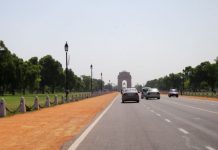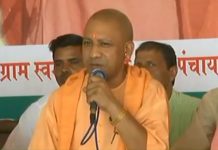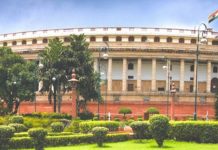
Your book sounds a little like a damsel in distress calling out for a knight in shining armour to come save our country.
(Laughs) Now that you’ve put it that way, I can’t really disagree with you. I wish I could. Well, democracy is a damsel, and a damsel can also be in distress if left to her own wiles and guiles, which happens in routine life of democracies. Things become pettier and pettier, and as I say in the book, dystopia sets in. You might have read Thomas Kuhn’s The Structure of Scientific Revolutions, where we have normal science and paradigmatic or revolutionary science. I think democracy also proceeds in a similar trajectory. We have ‘normal’ democracy — elections, petty politics, interests — and every now and then, a group of people are able to bring about transformations that enlarge the scope of citizenship.
Over the last half century or so, we have come to believe that democracy is more about representation than delivery. I don’t think the two are necessarily at odds with each other, but because of historical factors, the impetus to substantively realise citizenship is not as strong as it should be. In a country like India, there’s greater emphasis on individuals or NGOs doing extraordinary things, and the State is often let off the hook. But in the history of democracy, from the abolition of child labour to the National Health Service (in Britain), it’s always been the State that delivers. The ‘citizen elite’ is an elite of calling that has come up in history to make a difference. The interesting part is that whenever they make a difference, it is not because their interests are being served. Sometimes they go against their own interests also.

Dipankar Gupta
Rupa & Co
240 pp; 495
You have written that this revolution can only come from the elites of our society, and there are historical examples to show that such interventions have come from them. But what can us non-elites do in such a situation?
I think we are all elites, whether we like it or not. In India, the middle class is the elite. People like us don’t actually think of this. We think of removing corruption — which is not a bad idea — of high living, of treating our servants well. But we don’t take the idea of universal health and education as important features of social policy and debate. It’s not on our agenda. And if you raise the topic, they put up their hands and say, “Where’s the money?” I have argued that where these have been implemented, it has not happened because they had the money. Very often, they were poor countries and because they did it, they became rich. So you can’t say that we can’t do this because we don’t have the money, because in that case you’ll never have the money.
Because of this debate between socialism and capitalism, if the State does something, it is considered inefficient. That should not be the case. Even today, if you fall sick in France, you don’t go to a private hospital, but a government one. But if you have a patron-client relationship and a tiny sliver of a middle class, the State is not a very good vehicle for expression.
Empathy, in your mind, is the foremost principle of democracy, and you have written this book at a time when empathy is arguably at a historical low in this country. It’s all too gloomy, isn’t it?
Yeah, that’s true. But empathy is meant to be generated in a self-conscious way, which is the job of the citizen elite. But once it is generated, empathy becomes a condition of social life. It occurred to me for the first time when I was travelling in a train in the US. The ticket collector came, joked and chatted with us. It’s not like he sat and had tea with us, but he was an equal. I thought to myself that this is what it is. That I could be the ticket collector and he could be sitting there, and we would have a similar relationship. The empathy I saw on the train was not a conscious, self-generated one, but it had become a means of social intercourse. I think the citizen elite makes that break, so that all of us can have that empathy in our dealings.
But the idea of the welfare state has been discredited in India over the last two decades by the forces of capital. How would the citizen elite convince the masses to go back to the paradigm of State-based delivery systems?
The people of India aren’t really going to be convinced unless you do it for them. People don’t know what is good or bad if they haven’t experienced it. For instance, when the Delhi Metro wants to add new lines and expand, nobody objects as they did initially. This is because they know it is for their own good, because it has proved itself. Imagine if you could do this on a greater scale. I have seen it happen before my eyes in Basque Spain, how in a few short years, it went from being a basket case to one of the best parts of Europe.
And a primary reason for the success of the Basque region was the shift from an identity-based politics of victimhood to a model of improving citizenship.
In fact, they used their victimhood in a different way. They said, “We’re going to show you we are better than you.” The Euskadi Ta Askatasuna (ETA) played on Basque hurt for a long time, and the reason the Basque nationalists did so well after Franco’s death in 1980 was that they took that passion and channelled it differently. That is what took the winds out of ETA’s sails. I was saying to myself that if only the Shiv Sena and others thought that way, that if they told the Western world, “We are great Hindus, because we can do nanotechnology better, because we can harness wind energy better,” it would be so different.
Do you see potential citizen elites in today’s political class?
No, right now I just see elites. We have been conditioned to believe that people count, that we must play to our immediate interests. So the most you can expect is some clean elite to develop, but that is not the answer. One thing I want this book to address is not to blame people for democracy. All too often, we say we deserve the leaders we get, which is unfair. Most people don’t have a choice; you can only choose among those who are available. For example, you want to buy a car. You have a dream car in mind, which runs on hydrogen and can take 100 people. But that car is not in the market. Likewise, there are only certain politicians in the marketplace, and the entry price in politics is very high. It’s not just money; it’s also violence.
Are there measures that need to be taken to create the necessary conditions for a citizen elite to grow?
We need to stop being fobbed off by what people say. The media, for instance, is involved with Modi or not-Modi or Rahul or whatever, but they never ask them questions like “What is your policy for health?” They will say we need health for the poor, but we don’t want health or education targeted only to the poor, because we’ve seen that only leads to poor health and education. It has to be universal. But nobody asks these questions. Even those critical of Modi don’t ask him these questions. These are issues that must be raised by us. There has to be a certain amount of social churning.
ajachi@tehelka.com











